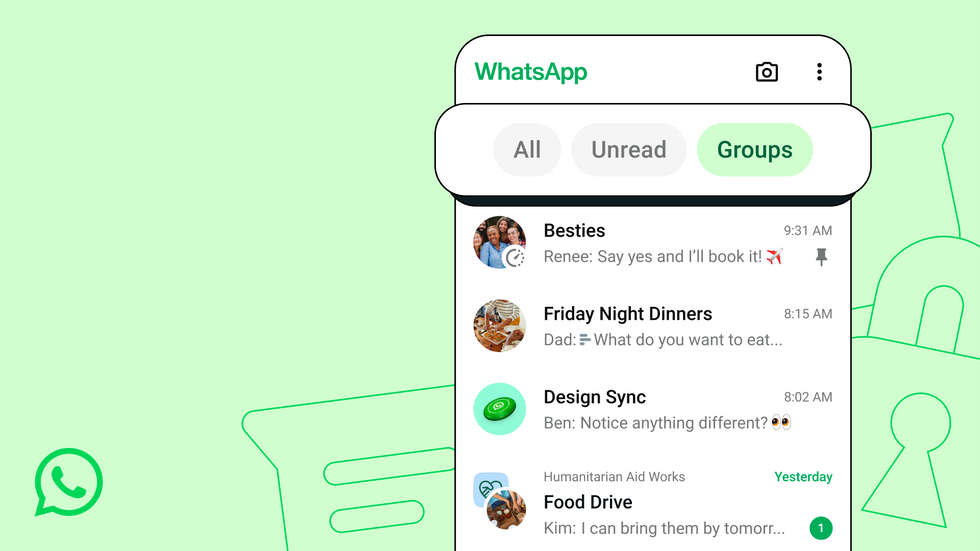



If you've noticed an increase in suspicious job offers and fraudulent messages on WhatsApp recently, you're not alone.
Figures from the Office of National Statistics show an eye-watering 4.2million incidents of fraud were reported between March 2024 and March 2024 in the UK, that's 81,000 attacks every single week. Meta has responded to this threat by launching two new security features designed to help you spot and serve scams before falling victim to them.
These tools arrive as criminal organisations increasingly target WhatsApp users with sophisticated schemes, from fake employment opportunities to cryptocurrency fraud. The new features focus on protecting you when strangers attempt to make contact, whether through group chats or direct messages.
Meta is the parent company of several platforms like Facebook, Instagram, WhatsApp, and Threads. it's also focused on building social networking platforms and developing technologies for the “metaverse” — a shared, immersive virtual and augmented reality space accessed via its Meta Quest headsets.

When someone you don't know adds you to a WhatsApp group, you'll now see a safety overview before entering the chat.
| META PRESS OFFICEIt rebranded from Facebook Inc. in 2021 to reflect its broader ambitions beyond social media.
Meta's approach centres on giving you more information and control when unfamiliar numbers reach out, allowing you to make informed decisions about whether to engage with potentially fraudulent communications.
The first security feature aims to protect you in WhatsApp group chats.
When someone you don't know adds you to a WhatsApp group, you'll now see a safety overview before entering the chat. This feature displays essential details about the group and provides safety guidance to help you decide whether to participate.
You can leave the group immediately without viewing any messages if something seems suspicious. Should you recognise the group after reviewing the safety information, you have the option to enter and check the conversation for additional context.
The system automatically mutes notifications from these groups until you confirm you want to remain a member. This prevents unwanted messages from flooding your phone while you assess whether the group is legitimate.

If you're unsure of the sender, call them on another verified phone number or channel
|PEXELS
The second security feature aims to protect you in individual WhatsApp chats.
Meta is developing alerts for when you receive messages from unfamiliar contacts who first approached you on other platforms. These warnings will appear when you begin conversations with people not saved in your contacts, displaying additional background information about the sender.
This helps you understand who's attempting to communicate before deciding whether to respond.
When it comes to taking extra precautions yourself, Meta recommends following a three-step verification process:
- Pause before replying
- Question whether the request seems genuine
- Verify the person's identity through alternative means, such as a callback from a different verified number
For instance, if they've messaged via WhatsApp, try calling their known phone number directly.
Criminal networks operate extensive scam operations using large numbers of mobile phones to send hundreds of thousands of fraudulent messages daily. Meta recently dismantled one such operation based in Cambodia that employed various deceptive tactics.
For instance, the criminals used ChatGPT to create initial messages containing WhatsApp links, then redirected victims to Telegram, where they assigned tasks like engaging with TikTok videos. After building trust by showing supposed earnings, the scammers requested deposits into fraudulent cryptocurrency accounts.
These schemes ranged from offering payment for fake social media likes to recruiting people into pyramid schemes involving scooter rentals. Meta's security teams are continuously working to identify and shut down these organised fraud rings targeting WhatsApp users.
